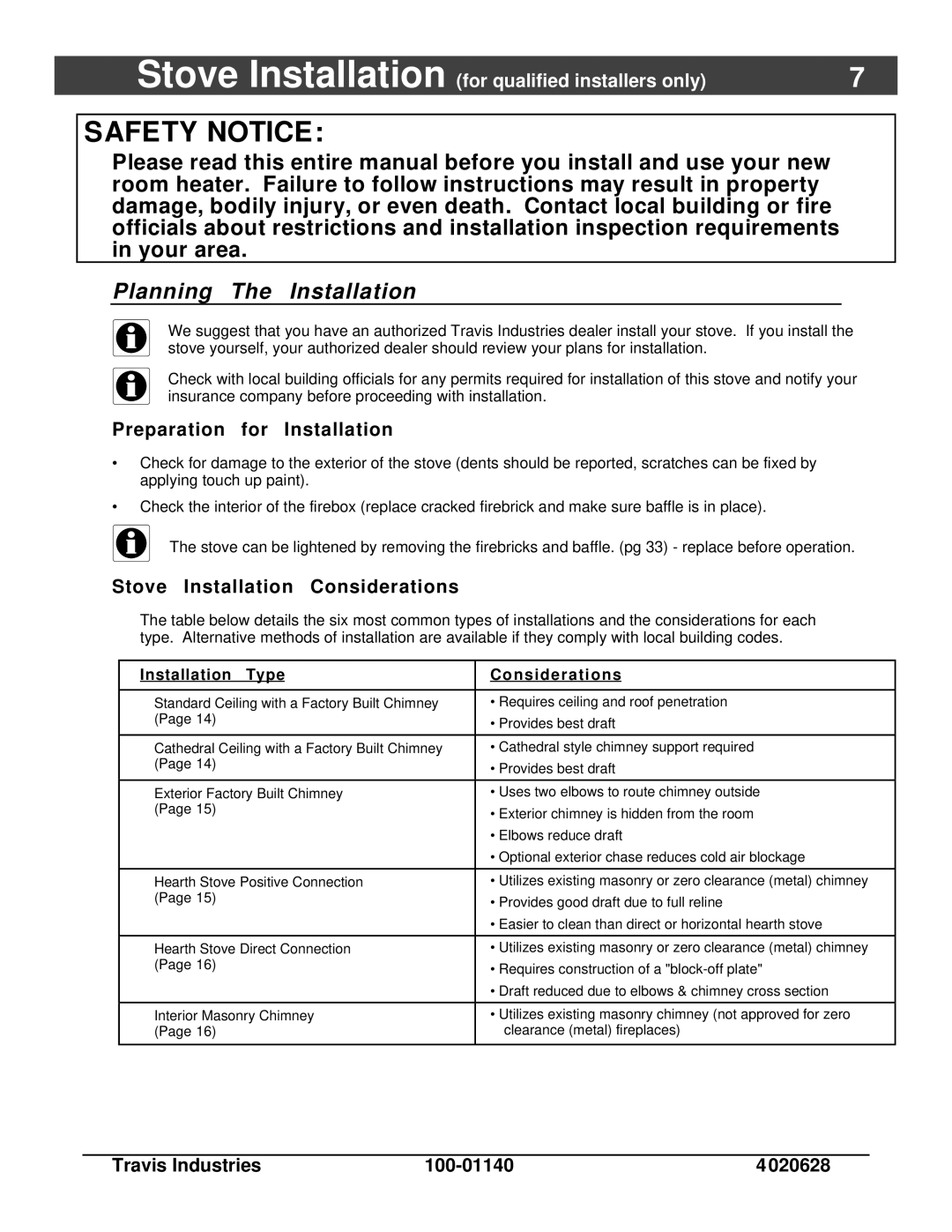Rainier specifications
Avalon Stoves has long been synonymous with quality and innovation in the fireplace and heating industry. Among its distinguished lineup is the Avalon Rainier, a stove that embodies both modern aesthetics and cutting-edge heating technology. Designed for those who appreciate the warmth of a fire while also seeking efficient heating solutions, the Rainier stands as a testament to Avalon’s commitment to excellence.One of the standout features of the Avalon Rainier is its impressive heating capacity. With the ability to heat spaces up to 2,000 square feet, this stove is perfect for larger homes or open-concept living areas. The Rainier boasts a powerful EPA-certified firebox, which enhances its efficiency and reduces emissions, ensuring that you not only enjoy the ambiance of a fire but also adhere to modern environmental standards.
The stove's advanced combustion technology is another remarkable characteristic. The Rainier employs a secondary combustion system, allowing for a cleaner burn and maximized heat output. This system significantly reduces the amount of smoke produced, providing a more pleasant experience while increasing the lifespan of the stove. The result is a cleaner environment and extended fuel efficiency.
In terms of design, the Avalon Rainier does not disappoint. It features a contemporary aesthetic that can seamlessly integrate into any home decor. With various finishes and optional tile surrounds, personalization is easy, allowing homeowners to dial up their unique style. The large viewing window enhances the visual appeal of the fire, inviting the warm glow into any room.
User-friendly functionalities set the Rainier apart from its competitors. The stove includes an intuitive air control system that allows for precise adjustments of the heat and burn rate. Additionally, the optional blower system enhances air distribution, ensuring that even the far corners of your home receive optimal warmth.
Durability is paramount in the construction of the Avalon Rainier. Made from high-quality materials, including heavy-duty steel and cast iron, the stove is built to withstand the rigors of daily use while maintaining its elegant look.
In summary, the Avalon Stoves Rainier offers an impressive combination of heating efficiency, desirable aesthetics, and user-friendly features. Whether you are looking to reduce your heating costs or simply enjoy the cozy atmosphere of a wood-burning fire, the Rainier is an excellent choice that exceeds expectations. Its commitment to both performance and design makes it a standout option for any homeowner.

